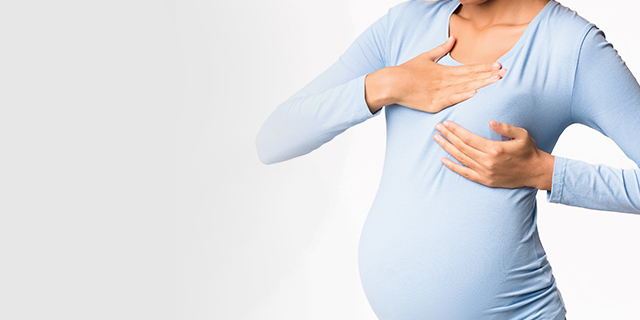Taking Care of Mom
As a mom we all seem to place ourselves a fair way down the ladder when it comes to looking after our own health. We all seem to worry about everyone and everything before taking any time to care for our own health and well-being. However, your health is something that you cannot afford to neglect.
The Cancer Association of South Africa (CANSA) has provided some valuable information regarding your gynaecological and breast health. Read this important message and then pass your knowledge on to your friends. Together we can spread the word.
Be ‘Body Aware’
One in 33 women in South Africa will be diagnosed with breast cancer, one in 39 with cervical cancer, and then there is ovarian, vaginal or uterine cancer to think of as well.
The most important message we can pass on to you and your circle of friends is to become what we call ‘Body Aware’. This means you need to get to know your body and learn what its usual functions are – work out what is normal for you.
If something doesn’t feel right or is different to how you normally feel or function, then you should get it checked out by your doctor. We have listed below some of the more common symptoms that may be a sign of cancer. Please be aware that if you have these symptoms it does not automatically mean that you have cancer, but we recommend that you see a doctor to be sure.
You should see a doctor if you notice any of the following breast health concerns:
Breast cancer
A lump, lumpiness, or a feeling of thickness, somewhere in your breast
Anything coming out of your nipple without squeezing, except breast milk
A change in the shape of your breasts or the appearance of dimples in your breast
Pain in a part of your breast
A nipple that turns in (unless it has always been turned in)
For more information:
CANSA - Fact Sheet - Breast Cancer
Gynaecological cancers
A change in the pattern of your menstrual bleeding, including bleeding between periods, after intercourse or menopause or heavier or longer bleeding
Pain during intercourse
Unusual vaginal discharge
Excessive tiredness, loss of appetite or unexplained weight loss or gain
Swelling, discomfort and pain in the abdomen
Gastrointestinal symptoms such as heartburn, nausea and bloating
Changes in bowel habits, such as constipation and diarrhoea
Itching, burning and soreness of the vulva
Any changes to the appearance of the vulva including lumps, swelling, sores, moles or any changes to the skin
Burning pain when passing urine
For more information:
CANSA - Fact Sheet - Cervical Cancer
CANSA - Fact Sheet - Uterine Cancer
CANSA - Fact Sheet - Vulvar Cancer
CANSA - Fact Sheet - HPV and Cancer
CANSA - Fact Sheet - Ovarian Cancer
CANSA Fact Sheet - Vaginal Cancer
Don’t forget!
You know your body best, so if you have concerns about any of the above symptoms please see your doctor. If your doctor doesn’t find anything and you are still concerned you should not be afraid to ask for a referral to a specialist.
Cancer smart recommendations
While there is no way you can guarantee that you won’t get cancer, there are steps you can take to lower your overall risk.
CANSA recommends you:
Quit smoking or, better still, never start.
Maintain a healthy body weight and be physically active.
Enjoy a balanced diet with plenty of fruit, vegetables and wholegrain or high-fibre foods.
Limit or avoid drinking alcohol. The recommendation for women is no more than 1 standard drink per day, and to try have at least 1 or 2 alcohol-free days a week.
Participate in recommended screening programmes.
Get to know your body and what is normal for you, and act when you notice any changes.
Regular checks and screening
Regular breast health checks and screening can help find cancer early when it may be easier to treat. Below are details of the available checks and screening programmes for women’s cancers.
Breast cancer
For the early detection of breast cancer it is recommended women:
Be ‘Breast Aware’ by familiarising yourself with the normal look and feel of your breasts.
See a doctor immediately if you notice any unusual breast changes.
If you are aged 50-69, have a mammogram every two years. If you are aged over 70 you should discuss the role of continuing mammography with your doctor. Mammography is not recommended for women under 40.
For more information see: CANSA - Women's Health
Gynaecological cancers
For the early detection and prevention of cervical cancer we recommend that all women aged 18 to 70 who have ever been sexually active have a Pap smear every two years.
Presently, there are no formal screening programs for ovarian, uterine, vaginal or vulvar cancers. It is recommended that, if you are experiencing any symptoms that do not feel normal, to visit your doctor for a breast health check-up.
Prevention is better than cure.
CANSA is a national network, dedicated to raising awareness of all types of cancers and to educate people on how to lower their cancer risk.
If you have further queries or concerns feel free to contact CANSA:
Email: [email protected]sa.org.za
Toll Free Call Centre: 0800 22 66 22
For more information see Motherhood or Parenting.























